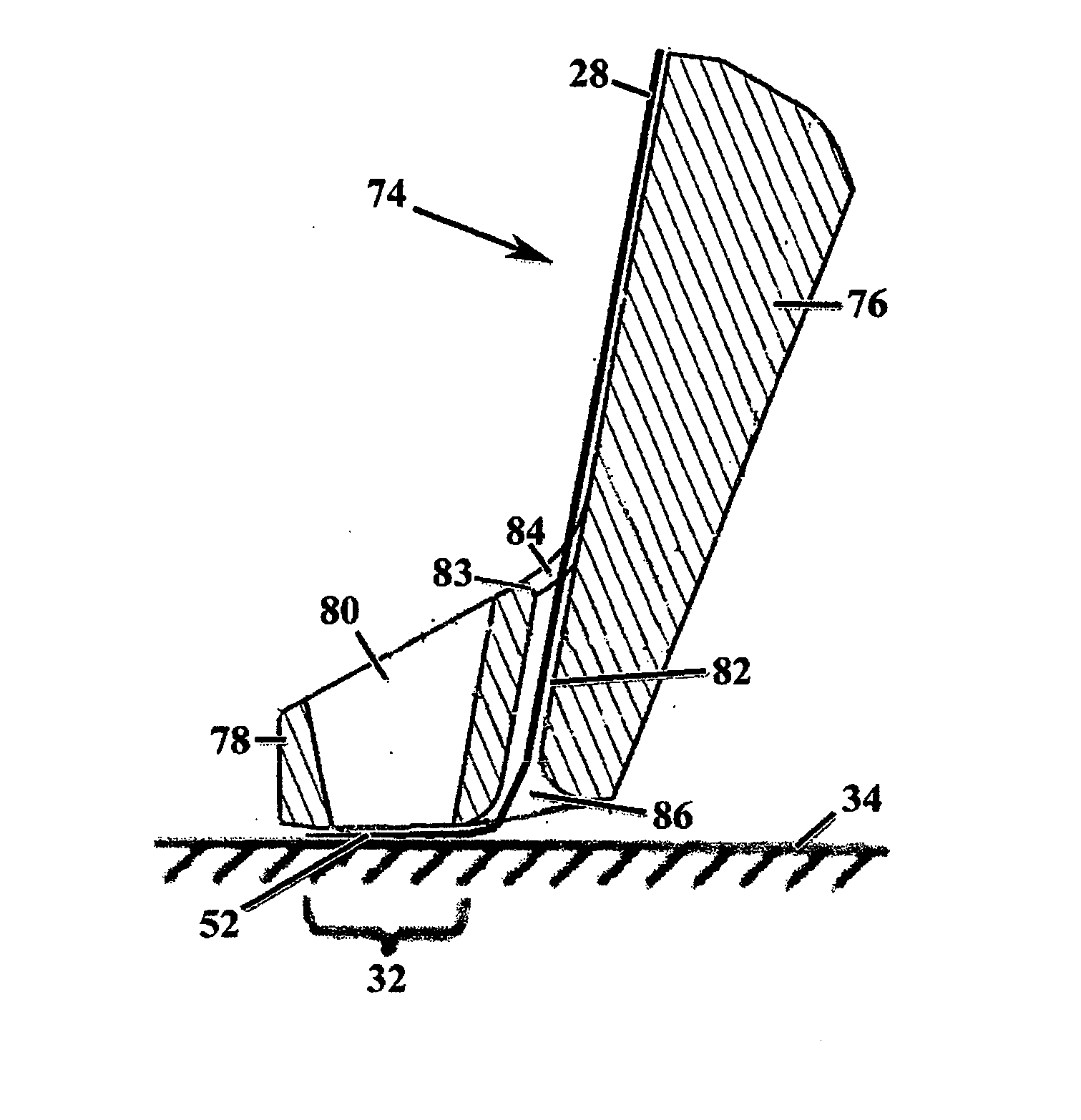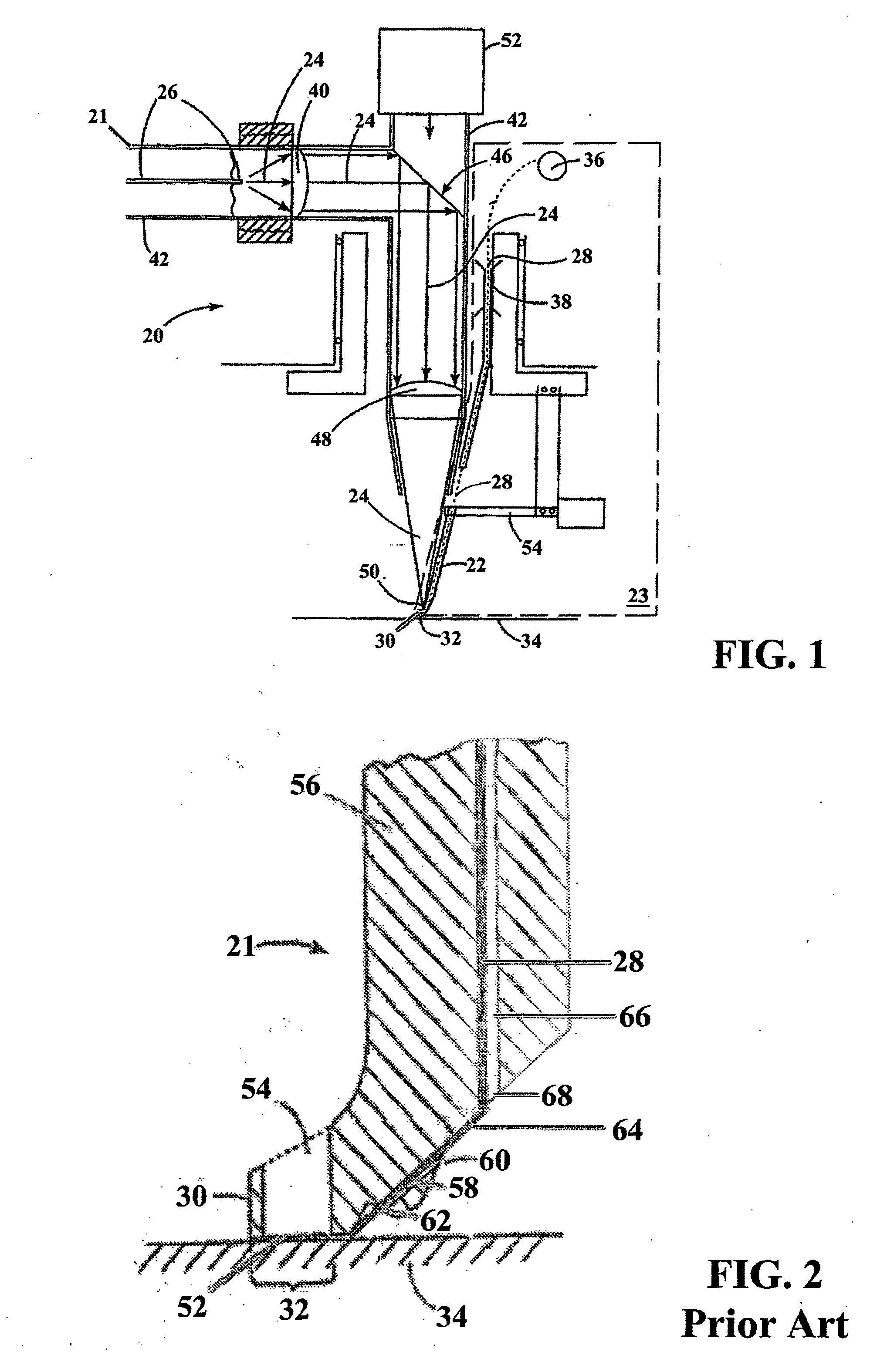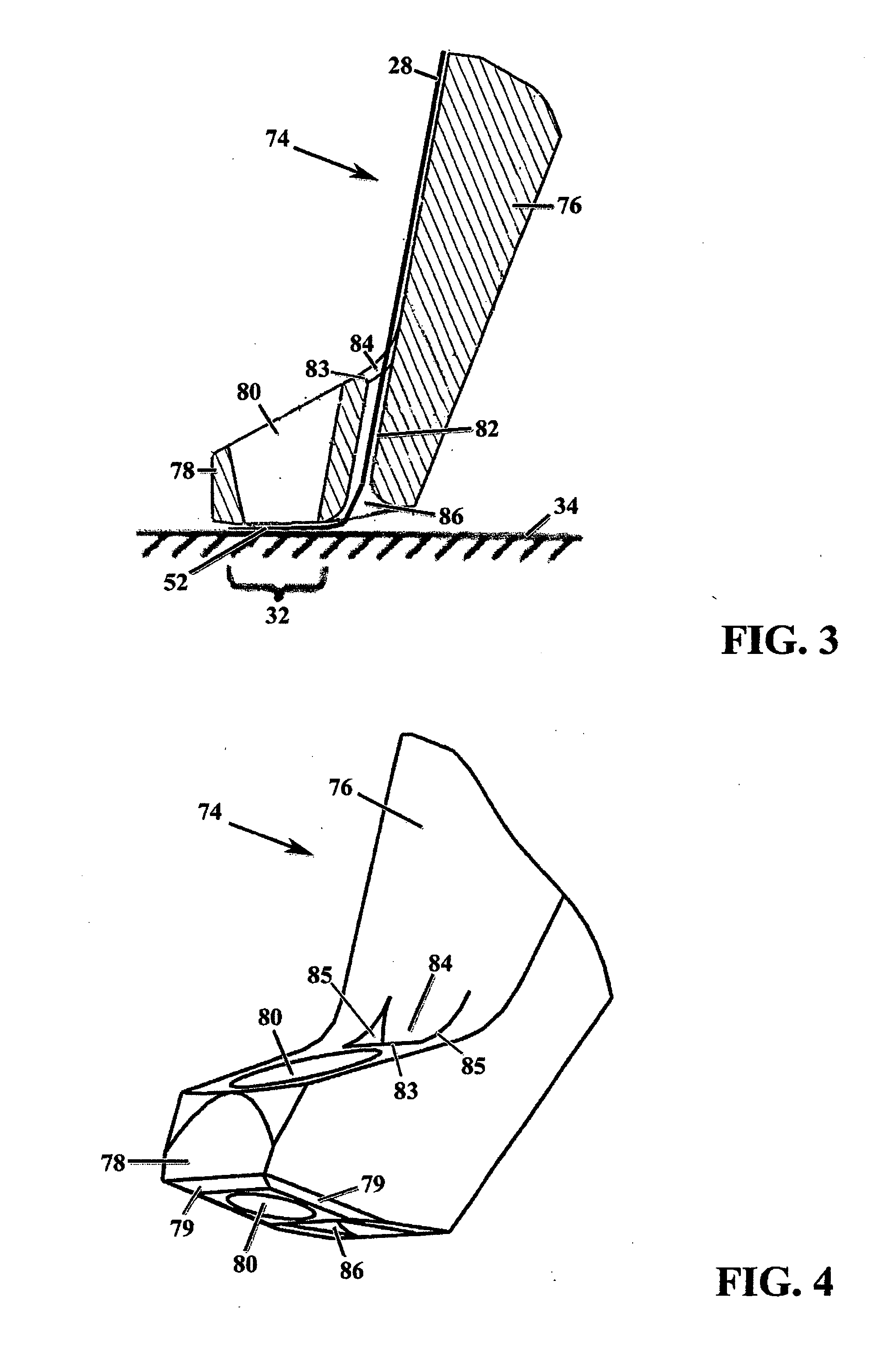Laser bonding tool with improved bonding accuracy
- Summary
- Abstract
- Description
- Claims
- Application Information
AI Technical Summary
Problems solved by technology
Method used
Image
Examples
first embodiment
[0027]FIGS. 3 and 4 are cross-sectional and isometric views, respectively, of a bonding tool 74 in accordance with the present invention. Similar to known bonding tool 21, bonding tool 74 comprises two general portions: an elongated body portion 76 (only the bottom portion of which is shown in FIGS. 3 and 4) and a foot portion 78, which extends transversely from body portion 76 (e.g., in a forward direction). Foot portion 78 has provided therethrough a laser aperture 80 that permits section 52 of bonding ribbon 28 to be exposed to laser beam 24 (FIG. 1) and thereby bonded to a bonding site (e.g., bonding site 32 on workpiece 34 as shown in FIG. 3). To help guide ribbon 28 through foot portion 78 and beneath its working surface, bonding tool 74 further comprises a guide channel 82 therethrough having an inlet 84 and an outlet 86. Guide channel 82 is disposed between laser aperture 80 and elongated body portion 76 such that inlet 84 is provided through the upper surface of foot portio...
second embodiment
[0030]FIGS. 11 and 12 are cross-sectional side and cross-sectional isometric views, respectively, of a bonding tool 100 in accordance with the present invention. As may be most readily appreciated by comparing FIG. 10 and FIG. 3, bonding tool 100 differs from bonding tool 74 in that a cover 104 is provided along a front surface 88 of body portion 76. Cover 104 may be formed integrally with elongated body portion 76 by way of, for example, welding, application of an adhesive, or attachment via one or more fasteners (e.g., set screws). Cover 104 cooperates with front surface 88 to form a ribbon conduit or guide 102 through which ribbon 28 may pass. The entrance of ribbon guide 102 may be located near the top of cover 104 and, when cover 104 is coupled to body portion 76, the proximal end of body portion 76 (not shown in FIGS. 11 and 12). The exit of ribbon guide 102 is preferably provided near the distal end of body portion 76 just above foot portion 78 (i.e., proximate inlet 84 of gu...
PUM
 Login to View More
Login to View More Abstract
Description
Claims
Application Information
 Login to View More
Login to View More - R&D
- Intellectual Property
- Life Sciences
- Materials
- Tech Scout
- Unparalleled Data Quality
- Higher Quality Content
- 60% Fewer Hallucinations
Browse by: Latest US Patents, China's latest patents, Technical Efficacy Thesaurus, Application Domain, Technology Topic, Popular Technical Reports.
© 2025 PatSnap. All rights reserved.Legal|Privacy policy|Modern Slavery Act Transparency Statement|Sitemap|About US| Contact US: help@patsnap.com



